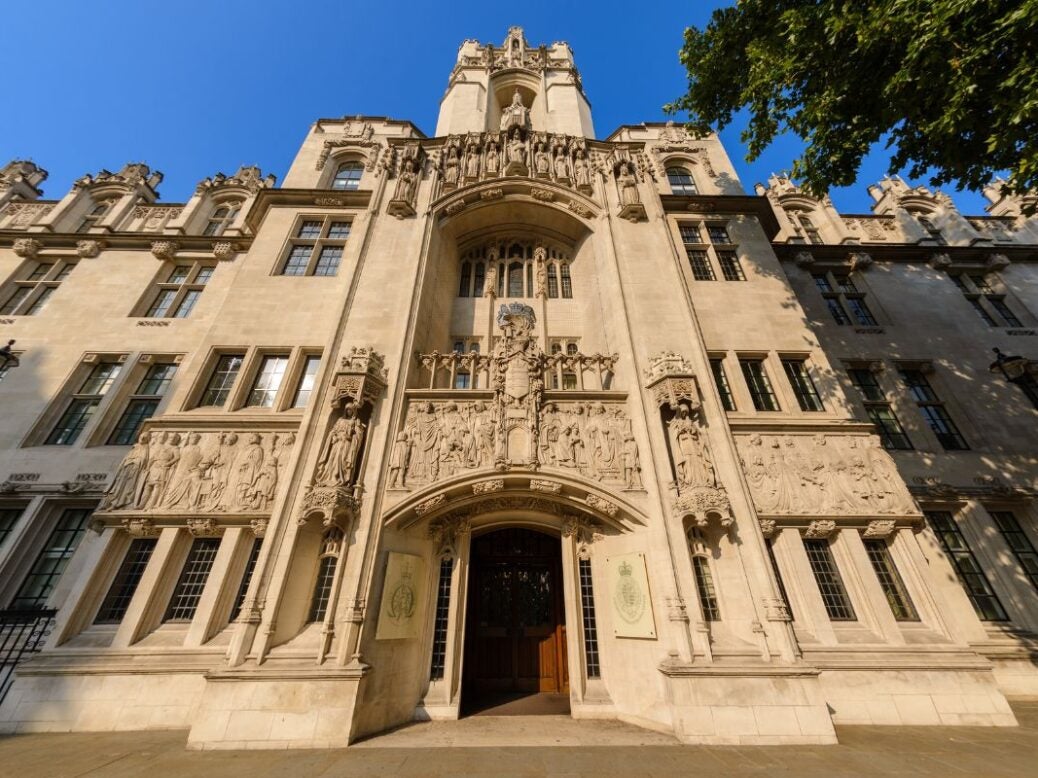
Wealth accrued before a marriage should not be subject to the ‘sharing principle’ that generally sees marital assets split 50:50 between spouses divorcing in England and Wales, according to a Supreme Court ruling today.
The eagerly anticipated judgment in the landmark case of Standish v Standish is seen as a precedent-setting decision that will have significant implications for the division of billions of pounds in wealth and property between divorcing couples in years to come.
Lords Burrows and Stephens wrote in their judgment that ‘though courts have been reluctant previously to say so, the time has come to recognise that the sharing principle applies only to [matrimonial property] and not to [non-matrimonial property].’
The ruling effectively narrows the scope of what counts as matrimonial property and signals a shift in how pre-marital wealth and intra-spousal transfers are treated in divorce. In practice, it means that an individual who accrues wealth before they are married will not be expected to share those assets equally with their former spouse upon divorce.
[See also: The best divorce consultancy and support service providers]
The ruling comes in the form of the dismissal of an appeal lodged by the wife, Mrs Standish, against one of the largest ever cutbacks to a divorce award.
The Supreme Court upheld the earlier decision of the Court of Appeal, which had slashed Mrs Standish’s award from £45 million to £25 million.
At the heart of the case is a £77 million transfer made during the marriage. Mrs Standish argued the sum should be divided under the ‘sharing principle’, which means that divorces in England and Wales proceed under the assumption that marital property will be split equally. (The sharing principle can be trumped by prenuptial agreements.)
The Supreme Court, however, found that the assets transferred to Mrs Standish during the marriage retained their character as non-matrimonial property, primarily because they were derived from wealth generated before the marriage by Mr Standish and had not been definitively committed to joint ownership.
[See also: Spear’s Family Law Survey 2025: Experts identify core trends]
The court’s view that the transferred money was not intended to be shared between the couple was also reinforced by the fact that the £77 million transfer was part of a tax planning arrangement, whereby Mr Standish intended his then wife to place the money into trust for their children in order to reduce inheritance tax. However, Mrs Standish did not set up the trusts and instead kept the assets in her name.
Sam Longworth of law firm Stewarts, who was the lead partner for Mr Standish, said: ‘The Supreme Court have now upheld the Court of Appeal’s determination of £25m, whilst accepting our arguments that the sharing principle should only apply to marital (as opposed to non-marital) assets.’
[See also: Divorce Day: Family lawyers on how to have a better separation]
He added: ‘The Supreme Court has also provided essential guidance as to when assets which do not have an originating connection to the marriage partnership should be considered marital. This guidance will give the courts a clear framework to ensure individuals cannot benefit from running false arguments as to whether they had or had not agreed to share certain assets during the currency of their relationship.’
The judgment says that only property and assets ‘which comprises the fruits of the marriage, reflects the marriage partnership or is the product of the parties’ common endeavour’ should be subject to equal division. In contrast, property acquired before the relationship – or gifted or inherited – is not automatically considered as matrimonial property.
Greater protection for (U)HNWs entering marriage
The Supreme Court ruling puts an end to years of uncertainty about whether non-marital wealth should be subject to the sharing principle.
‘The Court confirmed that title alone is no determiner of how assets should be divided upon divorce; such an approach risks discrimination and is contrary to fairness which underpins the ‘sharing’ principle,’ said Lucy Stewart-Gould, the second Stewarts partner for Mr Standish.
She added: ‘Title alone is insufficient evidence to permit a party to share in a non-marital asset. What is required is an intention to share and treatment of the asset as shared; on the proper analysis of the facts of this case there was neither.’
‘Divorcing couples across England and Wales now have clearer guidance on how their assets will be categorised upon divorce.’
[See also: Landmark ruling targets economic abuse in HNW relationships]
However the judgment acknowledged that non-marital assets can become shared property if both spouses treat them as joint over time, for example, through sharing them, as part of a process known as ‘matrimonialisation’. In this case, the Supreme Court found that that threshold was not met.
While the matter of the pre-marital transfer of £77 million has now been settled, Mrs Standish is pursuing a separate claim in the High Court, where she will argue that the £25 million divorce settlement she was awarded is not sufficient to maintain her standard of living.
Payne Hicks Beach, which represented Mrs Standish, was contacted by Spear’s but declined to comment on the case.







